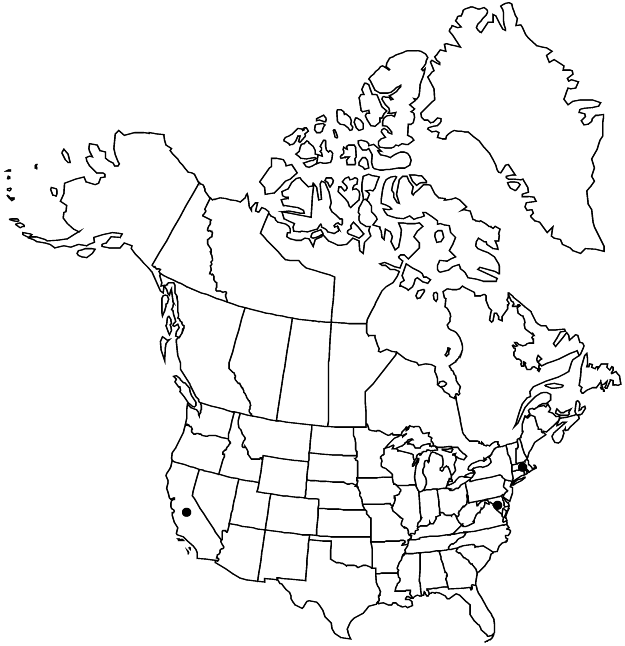Difference between revisions of "Herniaria hirsuta var. hirsuta"
Treatment appears in FNA Volume 5. Treatment on page 44.
FNA>Volume Importer |
imported>Volume Importer |
||
| (2 intermediate revisions by one other user not shown) | |||
| Line 1: | Line 1: | ||
{{Treatment/ID | {{Treatment/ID | ||
|accepted_name=Herniaria hirsuta var. hirsuta | |accepted_name=Herniaria hirsuta var. hirsuta | ||
| − | |accepted_authority= | + | |accepted_authority= |
|publications= | |publications= | ||
|basionyms= | |basionyms= | ||
| Line 19: | Line 19: | ||
|elevation=200-1800 m | |elevation=200-1800 m | ||
|distribution=Calif.;Md.;Mass.;s Europe;sw Asia;n Africa. | |distribution=Calif.;Md.;Mass.;s Europe;sw Asia;n Africa. | ||
| − | |discussion=<p>Variety hirsuta is apparently much less common than < | + | |introduced=true |
| + | |discussion=<p>Variety hirsuta is apparently much less common than <i></i>var.<i> cinerea</i> in North America. A historical record exists from Pennsylvania (1915).</p> | ||
|tables= | |tables= | ||
|references= | |references= | ||
| Line 28: | Line 29: | ||
-->{{#Taxon: | -->{{#Taxon: | ||
name=Herniaria hirsuta var. hirsuta | name=Herniaria hirsuta var. hirsuta | ||
| − | + | |authority= | |
| − | |authority= | ||
|rank=variety | |rank=variety | ||
|parent rank=species | |parent rank=species | ||
| Line 44: | Line 44: | ||
|publication year= | |publication year= | ||
|special status= | |special status= | ||
| − | |source xml=https:// | + | |source xml=https://bitbucket.org/aafc-mbb/fna-data-curation/src/2e0870ddd59836b60bcf96646a41e87ea5a5943a/coarse_grained_fna_xml/V5/V5_88.xml |
|subfamily=Caryophyllaceae subfam. Paronychioideae | |subfamily=Caryophyllaceae subfam. Paronychioideae | ||
|genus=Herniaria | |genus=Herniaria | ||
Latest revision as of 22:14, 5 November 2020
Stems 4–15 cm. Inflorescences 3–6-flowered. Flowers 0.9–1 mm, hairs mostly of 1 size, 1/5–1/3 as long as sepals, tips of hairs ± straight; hypanthium glabrous or pubescent, tips of hairs ± straight; sepals in fruit ± equal; stamens usually 5; styles connate in proximal 1/3, 2-branched, shorter than 0.1 mm. Seeds 0.6–0.7 mm. 2n = 18, 36 (Europe).
Phenology: Flowering spring–fall.
Habitat: Sandy flats, roadsides, woodlands
Elevation: 200-1800 m
Distribution

Introduced; Calif., Md., Mass., s Europe, sw Asia, n Africa.
Discussion
Variety hirsuta is apparently much less common than var. cinerea in North America. A historical record exists from Pennsylvania (1915).
Selected References
None.
Lower Taxa
None.